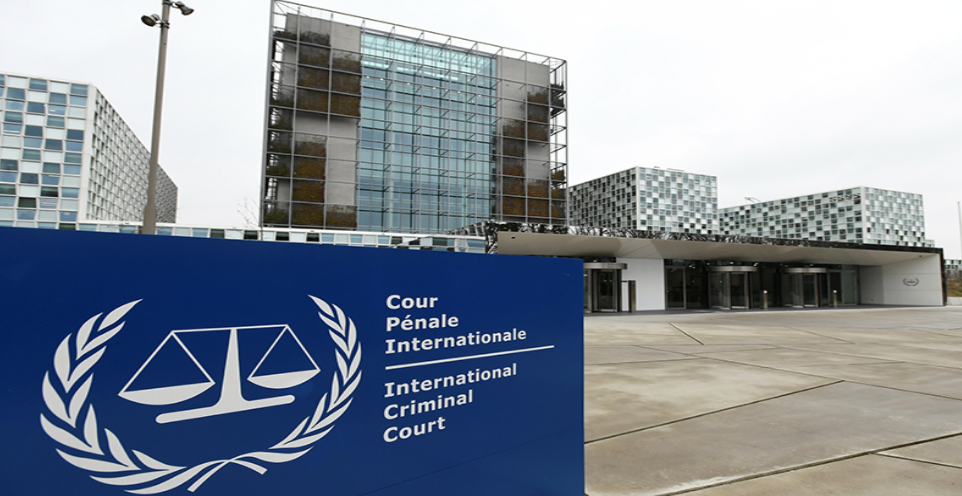Fatih Yurtsever*
On March 17, 2023, judges at the International Criminal Court (ICC) issued arrest warrants for Russian President Vladimir Putin and Maria Alekseyevna Lvova, commissioner for children’s rights in the office of the president of the Russian Federation. They are accused of committing war crimes related to the deportation of children from Ukrainian territories occupied by Russia and transferring them to the Russian Federation. With Turkish President Recep Tayyip Erdoğan’s close personal relationship with Putin and Turkey’s lack of involvement in the sanctions imposed on Russia following its invasion of Ukraine on February 24, 2022, what implications does the ICC decision to issue an arrest warrant for Putin have for Erdoğan?
International Criminal Court
The ICC is a permanent international criminal court that investigates and prosecutes individuals for the most serious crimes with far-reaching global implications. The ICC is mandated to act as a deterrent against future international law violations and hold those responsible accountable for their actions. When evidence warrants, the ICC exercises its jurisdiction and conducts trials in accordance with the Rome Statute, the treaty establishing the ICC. The Rome Statute sets out the jurisdiction, governance structure and procedures of the ICC for the prosecution of persons accused of crimes within its mandate.
The Rome Statute was adopted in 1998 and entered into force in 2002. By 2022, it had been ratified by 123 countries. Of these, 33 are African states, 19 from the Asia-Pacific region, 18 Eastern European countries, 28 Latin American and Caribbean states, and 25 Western European and other nations. Additionally, some countries, including the United States, Russia and China, have refused to ratify the Rome Statute and do not recognize the ICC’s jurisdiction.
The ICC investigates and prosecutes individuals for four types of crimes: genocide, crimes against humanity, war crimes and the crime of aggression. Genocide involves the specific intent to destroy a national, ethnic, racial or religious group. Crimes against humanity are serious violations committed as part of a large-scale attack against any civilian population, including murder, rape, imprisonment and torture. War crimes include grave breaches of the Geneva conventions, such as targeting civilians, hospitals or religious buildings. The crime of aggression is the use of armed force by a state against the sovereignty of another state. This crime was added to the Rome Statute in 2010, and the Assembly of States Parties activated its jurisdiction in 2017.
Jurisdiction
The ICC has jurisdiction over cases involving genocide, crimes against humanity or war crimes committed on or after July 1, 2002, by nationals of State Parties or within their territories. Furthermore, the ICC can investigate crimes referred to by the United Nations Security Council (UNSC) under a resolution adopted per Chapter VII of the UN Charter. Since July 17, 2018, the court can also investigate acts of aggression referred to by the UNSC, regardless of the state’s involvement with the ICC. In cases where the UNSC does not determine an act of aggression, the prosecutor may initiate an investigation after six months, with authorization from the Pre-Trial Division. However, the court will not exercise jurisdiction over crimes of aggression involving non-ratifying State Parties.
As an independent institution, the ICC has a cooperation agreement with the United Nations, which can refer to situations beyond the court’s jurisdiction, thus empowering it to intervene. Notable examples include the Darfur (Sudan) and Libya situations.
Turkey and the ICC
In 2004 Turkey began negotiations to join the European Union, and during this period the government of Prime Minister Recep Tayyip Erdoğan expressed its willingness to ratify the Rome Statute, which established the ICC. To prepare for this potential accession, they revised Article 38 of the Turkish Constitution to clarify the distinction between extraditing citizens to foreign states versus surrendering suspects to the ICC, thus creating a path for Turkey to extradite criminals to the ICC. However, Ankara did not ratify the Rome Statute because of the potential for prosecution by the ICC given Turkey’s ongoing fight against the Kurdistan Workers’ Party (PKK), the Cyprus issue and its alleged support for Islamic jihadist groups in Syria.
Despite not being a State Party to the Rome Statute, Turkey has been closely monitoring ICC activities. Turkish officials attend the annual meetings of the Assembly of States Parties, held in The Hague or New York, to stay up to date on the ICC’s activities.
Why is the ICC decision important for Erdoğan?
Following the Russian invasion of Ukraine, the global atmosphere divided the world into two blocs: democratic countries coming together to protect the rules-based international order, and autocratic regimes supporting Russia. The ICC’s recent decision regarding Putin could further exacerbate this polarization. Just after the ICC decision, Chinese leader Xi Jinping’s trip to Russia and their joint challenge to the rules-based international order during the visit, coupled with their assertion that the world is evolving into a multipolar structure, could intensify the struggle between the blocs. As a NATO member, the Erdoğan administration may have to reassess its relationship with Russia in this environment.
However, Erdoğan needs Putin’s support to succeed in the upcoming May 14 parliamentary and presidential elections. Aware of Erdoğan’s pragmatism in bilateral relations, Putin may visit Turkey before the elections to pre-empt any post-election policy changes towards Russia. This would put the Erdoğan administration in a difficult position since it would be hosting a president subject to an ICC arrest warrant. This situation could lead to a new breaking point in Erdoğan’s relations with NATO and the EU. At the moment, all Erdoğan can do is pray that Putin does not make such a visit to Turkey as Putin possesses significant evidence regarding the support given to radical terrorist organizations in Syria, which could lead to Erdoğan being tried by the ICC.
* Fatih Yurtsever is a former naval officer in the Turkish Armed Forces. He is using a pseudonym out of security concerns.



